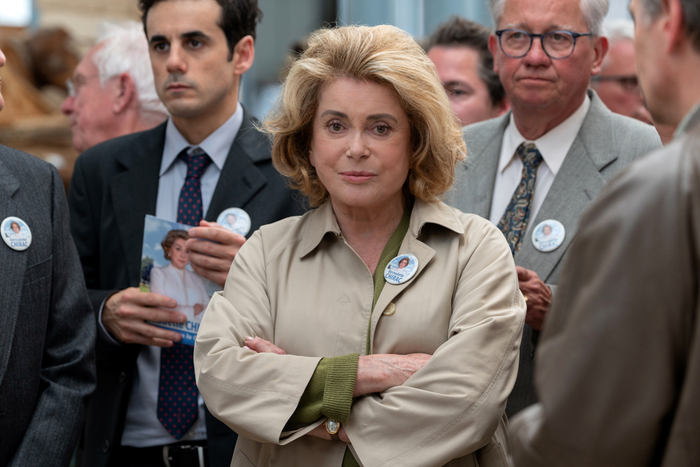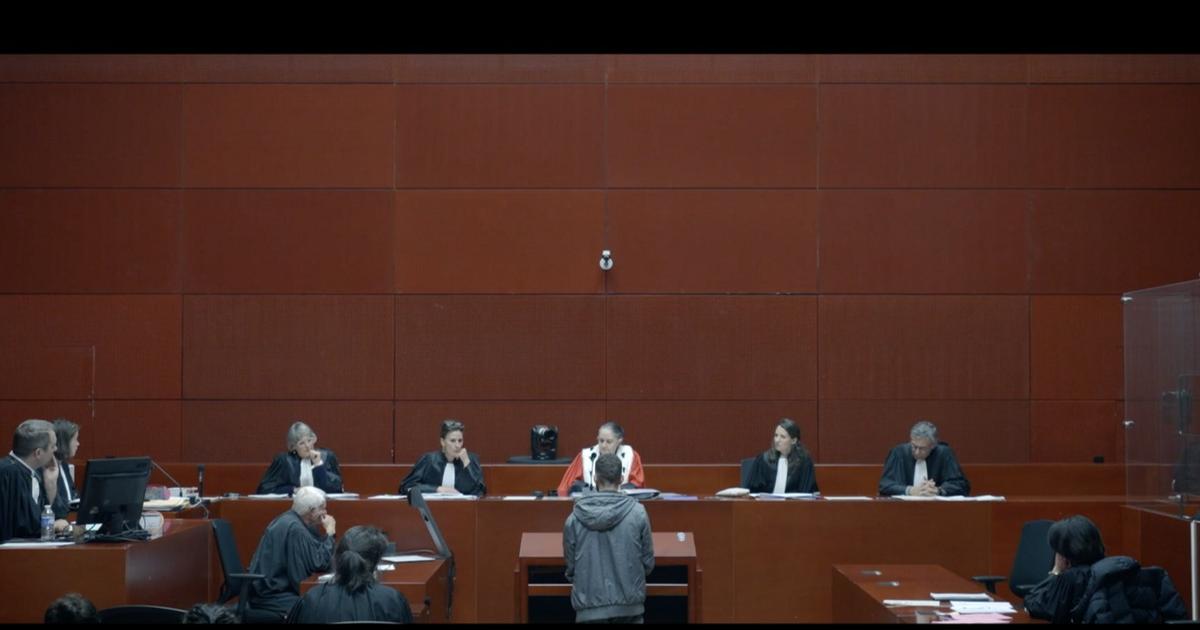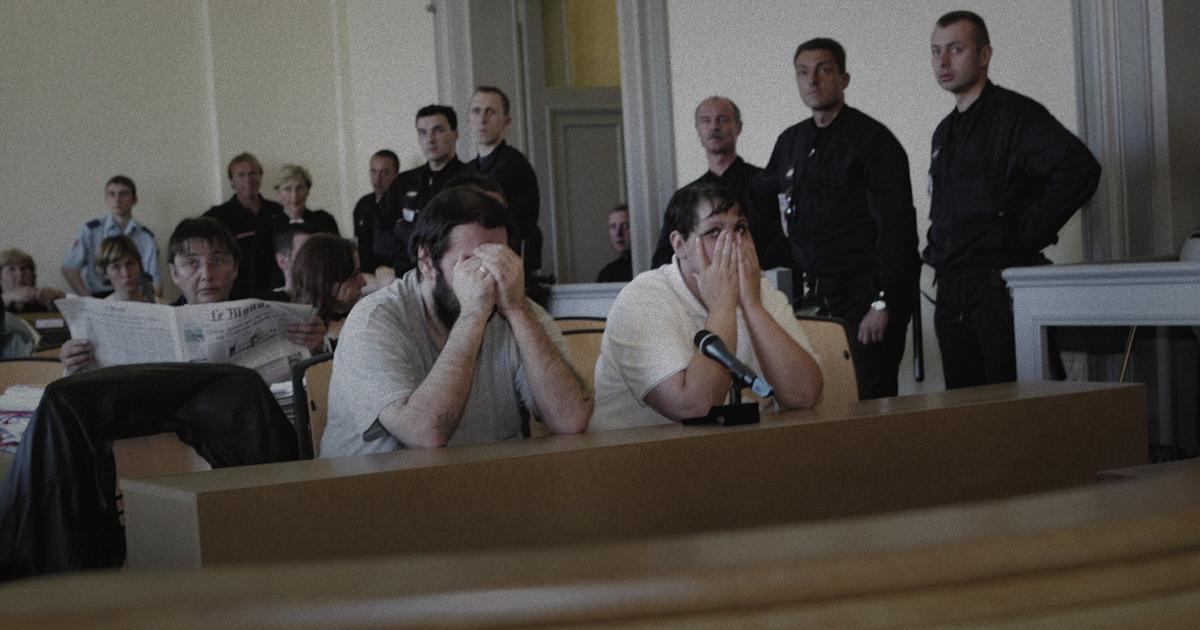Judith Ivey as Agata and Claire Foy as Salome in a scene from 'They Talk'.Michael Gibson (Universal Pictures)
For years, in a remote Mennonite colony, dozens of women were systematically drugged and raped while they slept.
The community insisted on maintaining that everything was the product of their absurd imagination, or perhaps the work of the devil, who was punishing them for their sins.
The rapists, however, were men from the neighborhood itself: uncles, brothers or neighbors who finally ended up in prison, but now, in just two days, they will be released on bail and return home.
Eight of these women who suffered abuse and rape are about to meet in secret to make a decision that will determine their future.
Do nothing.
Stay and fight.
Leave What should they do?
Under this premise , Ellas hablando
is presented
(Sexto Piso, 2020), the book by the Canadian writer Miriam Toews that was adapted to the cinema in a production with the same title directed by Sarah Polley, which is competing for the Oscar in the categories of Best Picture and Best Adapted Screenplay.
The story is inspired by real events that occurred in the Mennonite colony of Manitoba, 150 kilometers from the city of Santa Cruz, in Bolivia, located in the east of the country.
In 2009 it was revealed that more than a hundred women, including elderly, adult and adolescent women, were raped by a group of men from their own community, between the ages of 20 and 40, who used powerful sleeping pills in atomizer to sedate their victims, the men of the house and even the dogs during the night.
In this way they proceeded to abuse women.
Nine men were placed at the disposal of the Bolivian authorities, handed over by the Council of Elders who, in this type of Anabaptist community, tend to solve their problems and manage the colonies without the intervention of external authorities.
Toews, of Mennonite descent, felt horrified and devastated when she found out about the attacks, but the news "was not a surprise," she explained to EL PAÍS, given the conditions of these colonies: "isolated, patriarchal, authoritarian and religious fundamentalists , where women are silenced, uneducated and serve as virtual domestic prisoners.
“Scripture is interpreted by male elders in ways that dehumanize women and entitle men.
The colonias are autonomous, which means that outside help is not available when these types of crimes occur.
So, of course, it is not surprising that they continued for so long,” says Toews.
The cast of "Ellas hablando" in a still from the film. LANDMARK MEDIA / Alamy
Many of Toews's works have been in different ways a critique of fundamentalism, authoritarianism and violence within the Mennonite community and she sees the work as an extension of that, asking the same questions and examining the very ways in which women suffer. under these types of cultures in these types of regimes.
Both the film and the book choose not to fall into re-victimization.
It was important to Toews not to recreate the crimes.
“We can imagine what happened and our imaginations, as readers, are just as effective as words, if not more so, in filling in those gruesome details.
I liked the idea of a group of smart, funny, angry, compassionate, philosophical women, of different ages, sitting down and talking about what they would do in response to crimes, with the urgency of only having two days to come up with a plan." specifies the also writer of other novels such as
Irma Voth
.
The case that inspired the book and the film, which opens on March 2 in Latin America —starring Frances McDormand, Claire Foy and Rooney Mara, among others—, at the time had connotations from the Mennonite community, the world external to this and some media to replicate terms such as "phantom rapes" or "wild female imagination" to talk about the abuses committed against these women, which only minimized the violence and, even, are a constant in this type of crime.
“They are sensationalized terms that you see in the news headlines, or as bait for clicks.
They only reinforce the lies used to discredit women.
They do nothing to help us understand the fundamental social conditions of these communities and the root causes of these crimes,” Toews reinforces.
For the author, it is difficult for a separatist religious community to escape the dangers associated with insularity, since isolation and isolation are methods of control for the citizens of these communities.
Despite the years, she does not see an improvement for the women in these sites because the control combined with the emphasis on shame, blame, silence, strict rules, punishment and the repression and oppression of girls and women , add up to a "powerful recipe for violence and abuse."
“The number of incidents of patriarchal domestic violence in these neighborhoods is sky-high and, for the most part, the world is indifferent, which is just what elders and religious leaders like.
When the outside world begins to show interest in these crimes, the colony packs its bags and leaves for even more remote parts of the world where they will be left alone and free to behave with impunity”, adds the writer.
Sarah Polley, the director of the adaptation —with at least a dozen awards, including the Critics Choice Award for Best Adapted Screenplay—, believes that we are in a time when there is much wrong and there is much to change. , much to tear down, many situations that are not working and the conversation that these women hold in a barn address all these topics of discussion, the damage and violence of hierarchical power structures.
“It also opens [the film] a window to show what happens when people don't agree on many things and they come together to imagine a better world ahead.
That feeling of possibility, of hope that comes from people being able to discuss these kinds of topics is an essential part of the conversation.
It is the impact that the book had on me and what I hope will have an impact on the audience that sees the film”, concludes the director.
Subscribe here to the EL PAÍS America
newsletter
and receive all the latest news from the region






/cloudfront-eu-central-1.images.arcpublishing.com/prisa/JOUHOYP5TZF3RFHSGHG2XJTTLY.jpg)
/cloudfront-eu-central-1.images.arcpublishing.com/prisa/UR4QR6POJFBHPDM7OWJOJXPHDI.jpg)

